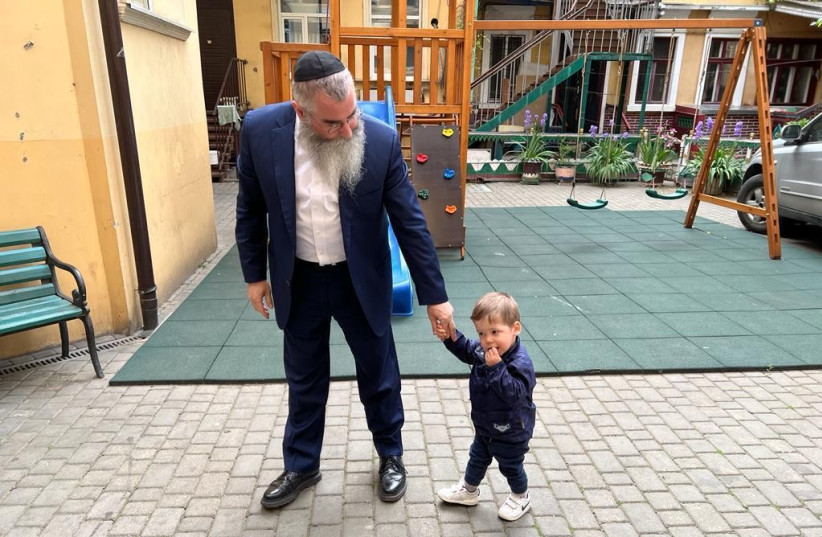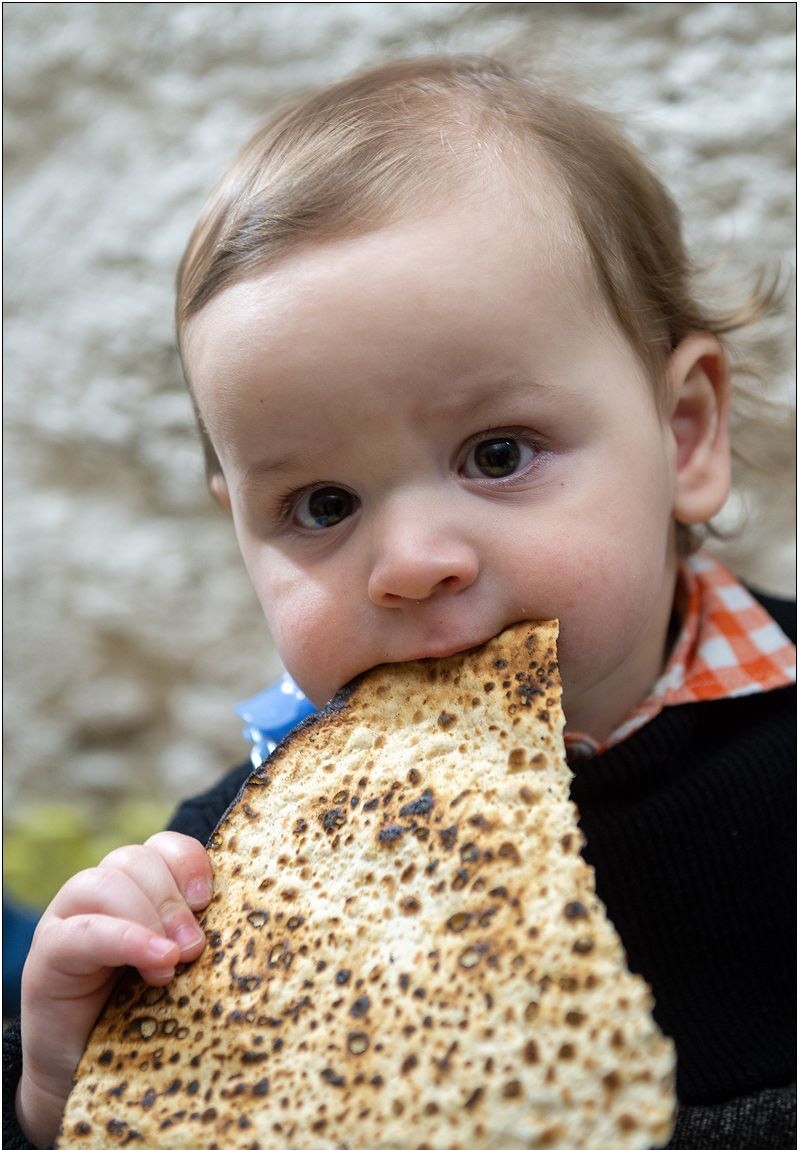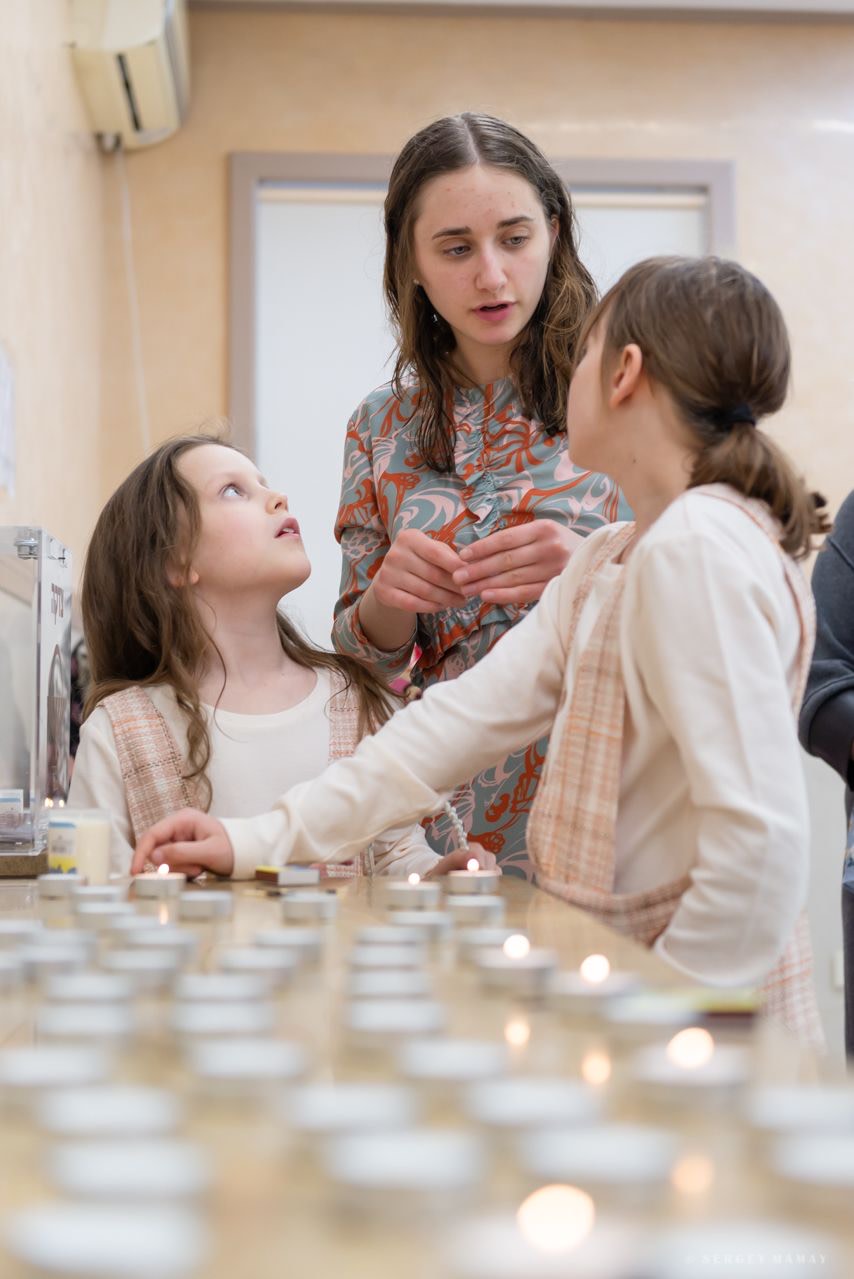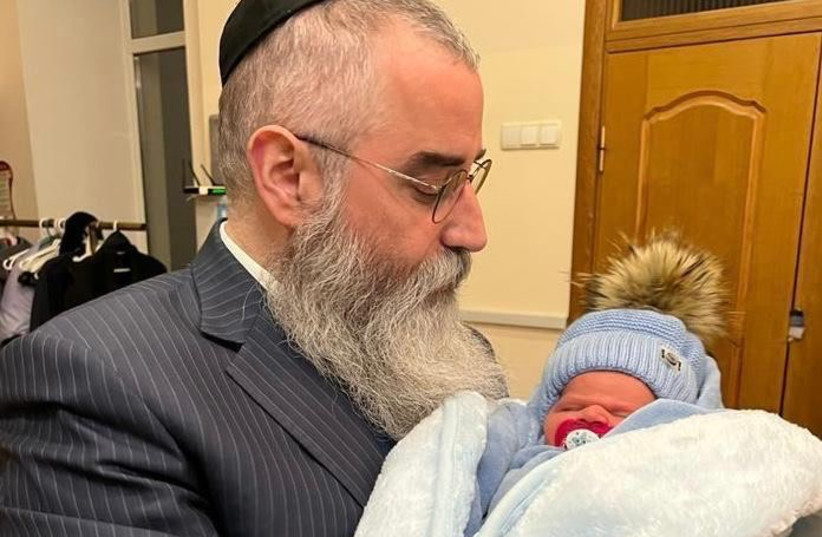I didn’t believe I would return to Odesa during the current situation, defined as a "state of war," and even more so, I didn’t believe I would see what my eyes saw on the day I was in the city, but why put the cart before the horse? Let's start at the beginning. The offer to come to Odesa came from me, I heard a lot about Odesa and especially heard about the warm and special synagogue at 21 Osipova Street, from which Rabbi Avraham Wolff, rabbi of Odesa and southern Ukraine and a Chabad shaliach, oversees all Jewish activity in the city on the shores of the Black Sea.
I’ve visited this city three times before, but in war, as in war, everything is upside down and nothing looks like it did before. If I used to get on a Ukraine International plane for a two-and-a-half-hour direct flight and land in Odesa, and then in 10 minutes by local taxi I would get to the Chabad synagogue, today you have to have patience, sorry, a lot of patience to get to the exact same destination that until last year took no more than three hours.
First of all, it is important to clarify that there are no flights that take off or land over Ukraine. Not in the capital Kyiv and certainly not in the other cities such as Odesa, Dnipro and Kherson. What to do? You land in a nearby border country and from there you start a meandering journey that can take a good few hours and sometimes even a day to reach your destination.

In my case, the situation was a little more ideal, since from the Moldovan border (Chisinau) the road to Odesa takes about four hours on average. This is of course assuming that you aren’t delayed too much at the border and everything flows smoothly.
I left Israel on a night flight to Chisinau, and within two and a half hours we landed. Gennadiy, the driver who is supposed to take me to Odesa, is waiting for me at the airport. Within minutes I find myself on a fast night drive, with mostly darkness and trees around. From time to time we pass an inactive gas station or several roadside garages with an electric neon light flickering above them. That's it, we arrived at the "Palanka" border station and the driver asks me for my passport and gets out of the vehicle to talk to the soldiers at the border. After about 15 minutes, one of the armed soldiers approaches the car, glances in my direction with a small flashlight and asks the driver to open the trunk. After a short check, the soldier again talks for a few seconds with the driver and returns with him to the booth to stamp the passports.
From there we continue driving towards Odesa, faster than we did on the Moldavian side, and when dawn breaks around 5:30, I find myself on the outskirts of sleepy Odesa and the memories of my previous visits to the city begin to return. Only this time there is a small and noticeable change, somewhat patriotic, in the form of graffiti that is sprayed on the walls of the buildings at intervals of 100 and 50 meters, two yellow and blue stripes that make up the Ukrainian flag.
It's 6 a.m. I arrived at the Vintage Hotel, which is a two-minute walk from the main synagogue of the Jewish community in Odesa. There, a spacious and airy room awaits me for a light nap. I woke up late and started walking to the synagogue, where I found a group of Jews sitting and studying Torah, Gemara and Halacha, everything is very familiar to me from my previous visits to the city, memories literally flood me, and for a moment I couldn't believe that I was actually standing there. The streets are relatively empty and the traffic is sparse, but you can't be mistaken, the residents of Odesa are trying their best to lead a normal daily routine as much as possible.

After a cup of coffee, I go up to the third floor at the back of the synagogue to talk with the chief rabbi of Odesa, South Ukraine, Rabbi Avraham Wolff.
The rabbi talks to me about life before the war and life during the war, and you can see that he went through a lot of difficult, not to mention impossible, moments in this year of the war. From time to time the secretary comes in with questions about community matters. I hear many questions of life and death, medicine for the needy, hospitalization of an old man in the community's seniors’ residence, urgent evacuation from the country for a third party, a Jewish soldier at the front asking for kosher food, a military commander waiting for an urgent conversation with the rabbi, the director of the Mishpacha orphanage reports to the rabbi about another Jewish child whose mother and father were killed in the fighting in one of the cities last week, and the neighbor is now sending him to Rabbi Wolff for adoption. A halachic question and a conversation with the deputy mayor, the pace is suitable for wartime, and Rabbi Wolff answers and answers, arranges and deals with issues, and I think of the pressure he has been under for over 400 days of combat, and this is apart from all his other duties in maintaining dozens of Jewish community institutions. Suddenly it seems to me that the calmness on his face is the one calming the thousands of Jews who are still left in Odesa hungry, destitute and under missile and drone attacks on an almost daily basis.
The conversation goes on and on, with Rabbi Wolff painting a picture of the situation on the one hand that they have indeed suffered a shock, and on the other hand - they continue because this is their mission. While talking I notice some kind of strange mobile phone from the previous generation lying on his desk, when I ask: "What is this device?" He hands it to me and explains with a smile: "This is a satellite phone that you’re holding in your hand now. In the first days of the war, this phone came to us from the JRNU [Jewish Relief Network Ukraine] organization headed by Shlomo Peles, so that we could communicate with the outside world. Everything here collapsed. There was no electricity, there was no internet, it was our only means of communication."

At the end of the conversation with Rabbi Wolff, I continue on a tour of the Mishpacha orphanages for boys and girls with Rabbi Shneor Vigler, the director-general of the institutions in the city. During the drive, he shows me a number of key sites that became desolate following the war. In the orphanage’s kitchen, the cooks are finishing preparing lunch. The girls are in classes with the teachers, who are teaching them as if there isn’t a war here.
When leaving the kitchen for the yard, I notice a huge generator in the center of the yard. "This is the first generator that we brought here with the generous help of the JRNU organization, the KMR Foundation of Kate and Marty Rifkin, PLFA – The Patrick and Lina Drahi Foundation. We now have 11 generators that supply electricity to the educational institutions and the synagogue. These generators are real oxygen for our activities. The switch in the city is turned off almost every day for a few hours, and from that moment darkness covers the city. I am no longer talking to you about the nightly curfew. But thank God, thanks to these generators, we can continue to live here."
From there we continue to the boys’ orphanage, which is a short drive away, where we meet a large number of the children and boys who at the beginning of the war Rabbi Wolff evacuated to Germany along with 300 women who were alone, their children and 120 children of the Odesa Chabad Mishpacha Orphanage, who returned to Odesa after a year of staying in a refugee camp founded by Rabbi Wolff. Now the children are in Odesa, excited and happy to be in a home they have known since they were young children.
In one of the rooms, we find two cute children opening candy bags sent to them from around the world to make them happy and cheer them up. We ask the children: "Where is it best for you?" "Here!" they answer quickly. "Where is here?" "In Odesa!" they answer with a smile.

On the way back I chat with Igor Shatkhin, chairman of the Federation of Jewish Communities of Southern Ukraine, who hasn’t slept a wink for a year and two months of war out of concern for the Mishpacha orphanage’s 120 children and the Jewish communities, in general. "Since the beginning of the war, we have evacuated over 250 buses full of Jews and Ukrainian citizens across Europe, we’re distributing thousands of food packages every month to the needy and Holocaust survivors, so that they can survive the hunger and darkness.” He once again mentions the KMR and JRNU foundations, which supported and are continuing to support throughout the war in their great and important activities. “Now our biggest concern is the safety of the children, we are currently looking for funding to build shelters for the schools, kindergartens and orphanages all over southern Ukraine. It is about children's lives, and we are doing everything, literally everything, to find the money so that we know that our children are protected and not exposed, God forbid, to dangerous situations," concludes Mr. Shatkhin.
I'm going out for dinner and a farewell conversation with Rabbi Wolff. During that, a siren sounds. "I removed the updates app for the sirens and the booms," Rabbi Wolff tells me. "It's to live under stress all the time. If I hadn't been informed now by a Jew from the community who saw the missiles in the air, it's likely that I wouldn't even have noticed it." In the conversation at the restaurant, Rabbi Wolff is less formal and he allows himself to share with me some of the thoughts and concerns that accompanied him at the beginning of the war. "It was important to convey strength and stability, it's not easy, but the rabbi's behavior is very important for the calmness of the community.”
"How do you raise money in these difficult days, for so many life-saving activities for tens of thousands of elderly Jews and for hundreds of children?" I ask him cautiously, "It's not easy," Rabbi Wolff says. "People who helped us in the past became needy themselves." He tells me about rich people in the past who today ask for food parcels, some fish and bread, and his eyes swell up with tears. "There has been serious chaos here for over a year, but the possibility of throwing up my hands and surrendering didn’t occur to me at all. I decided that I would fight for this place no matter what." And yet, where is the money coming from? I insist. And Rabbi Wolff says that “God sent us many good people in this difficult year, who supported and continue to support us, and are enabling us to stay alive and help tens of thousands of others live..."
"Now I will take you to a special place," says the rabbi. After a few minutes of driving, we arrived again at the Mishpacha orphanage, which I visited only a few hours ago. "Now the children are getting ready for bed, let's go up to them and spend some time with them," he suggests. I go up with him to the third floor of the boarding house in the wide and magnificent building and there is a siren again. On the armchair in the corridor sits little Tovia, the famous orphan. He is with his helper and caregiver next to him. In the rooms, the children are getting ready for bed and I sit down in front of them with a storybook that seems to have been used a lot. "This is their home. They don't know any other place. If they have to run away from something, at some point in time they will come here," says Rabbi Wolff as he turns off the power switch and wishes them a good night in their language.
On the way back, I use the opportunity to get my head in order after so much positive information I received in the city during such a difficult war. In total, I was away from home for two days. One day I was in Odesa and one day on the road and on flights, but it was definitely worth it to see the unbelievable up close, that the principle of shlichus is alive and kicking with the Lubavitcher Rebbe’s shluchim, even at the cost of the inconvenience I went through. This quick visit gave me the desire of course to return there in the near future, so the words “over but not done with” definitely express a true feeling with which I left Odesa thrilled.
This article was written in cooperation with Orphanage Odessa
